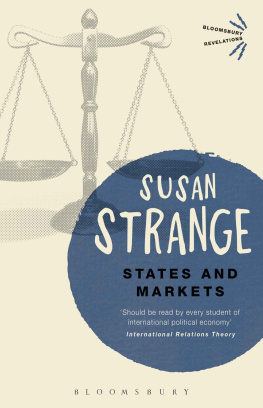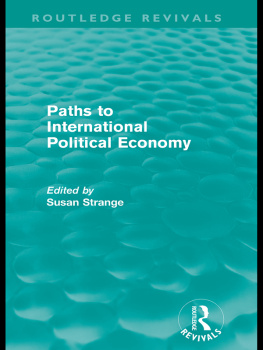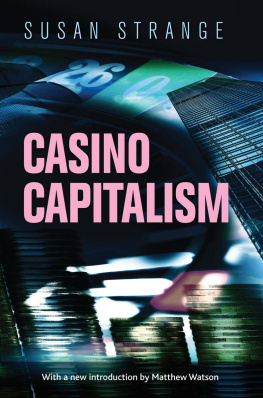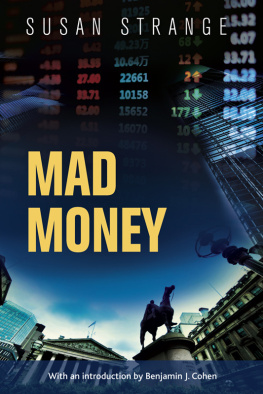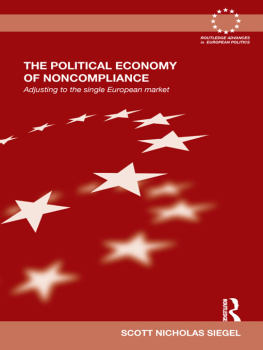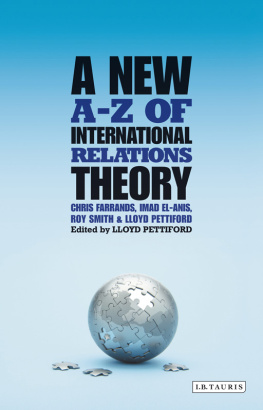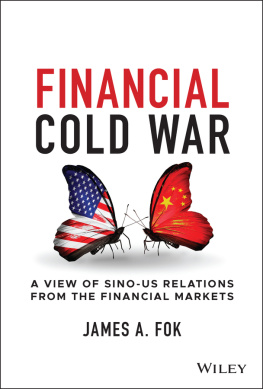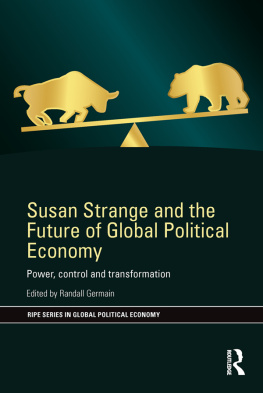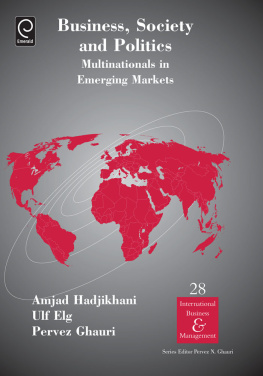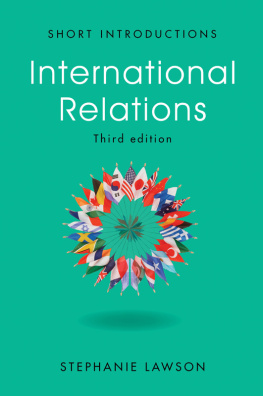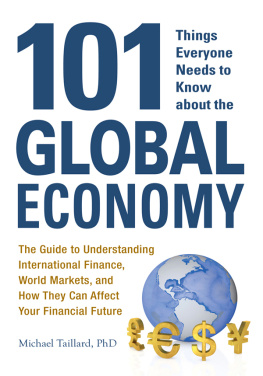States and Markets
TITLES IN THE BLOOMSBURY REVELATIONS SERIES
The Sexual Politics of Meat , Carol J. Adams
Aesthetic Theory , Theodor W. Adorno
The Oresteia , Aeschylus
Being and Event , Alain Badiou
Infinite Thought , Alain Badiou
Theoretical Writings , Alain Badiou
On Religion , Karl Barth
The Language of Fashion , Roland Barthes
The Intelligence of Evil , Jean Baudrillard
Key Writings , Henri Bergson
I and Thou , Martin Buber
The Tomb of Tutankhamun: Volumes 1-3 , Howard Carter
A History of the English-Speaking Peoples: Volumes IIV , Sir Winston S. Churchill
Never Give In! , Sir Winston S. Churchill
The Boer War , Sir Winston S. Churchill
The Second World War , Sir Winston S. Churchill
The World Crisis: Volumes IV , Sir Winston S. Churchill
In Defence of Politics , Bernard Crick
Intensive Science and Virtual Philosophy , Manuel DeLanda
Cinema I , Gilles Deleuze
Cinema II , Gilles Deleuze
Difference and Repetition , Gilles Deleuze
Logic of Sense , Gilles Deleuze
A Thousand Plateaus , Gilles Deleuze and Flix Guattari
Anti-Oedipus , Gilles Deleuze and Flix Guattari
Origins of Analytical Philosophy , Michael Dummett
Taking Rights Seriously , Ronald Dworkin
Discourse on Free Will , Desiderius Erasmus and Martin Luther
The Theatre of the Absurd , Martin Esslin
Education for Critical Consciousness , Paulo Freire
Pedagogy of Hope , Paulo Freire
Marxs Concept of Man , Erich Fromm
To Have or To Be? , Erich Fromm
Truth and Method , Hans Georg Gadamer
All Men Are Brothers , Mohandas K. Gandhi
Violence and the Sacred , Ren Girard
Among the Dead Cities , A.C. Grayling
Towards the Light , A.C. Grayling
The Three Ecologies , Flix Guattari
The Essence of Truth , Martin Heidegger
The Odyssey , Homer
Eclipse of Reason , Max Horkheimer
The Nazi Dictatorship , Ian Kershaw
Language of the Third Reich , Victor Klemperer
Rhythmanalysis , Henri Lefebvre
The Modes of Modern Writing , David Lodge
Libidinal Economy , Jean-Franois Lyotard
After Virtue , Alasdair MacIntyre
Time for Revolution , Antonio Negri
Apologia Pro Vita Sua , John Henry Newman
The Politics of Aesthetics , Jacques Rancire
Course in General Linguistics , Ferdinand de Saussure
An Actor Prepares , Constantin Stanislavski
Building A Character , Constantin Stanislavski
Creating A Role , Constantin Stanislavski
Interrogating the Real , Slavoj iek
The Universal Exception , Slavoj iek
Some titles are not available in North America.
States and Markets
Susan Strange
Bloomsbury Academic
An imprint of Bloomsbury Publishing Plc

Contents
Figures
Tables
Consciously or unconsciously, so many people have helped me write this book that I would find it hard to remember and list them all by name. Mostly I must acknowledge colleagues and students at the London School of Economics and other places I have visited over the past decade or so in which I have tried by trial and error to introduce university students at all levels to the study of international political economy. One of the first was an evening class of mature Masters students in the London programme of the University of Southern California, meeting at Chatham House. Two of the most recent have been an undergraduate class at the University of California in Davis and a Masters class at the Bologna Center of the Johns Hopkins School of Advanced International Studies. In between I have profited from teaching or advising students at the University of Southern California in Los Angeles, at the University of Minnesota, the Australian National University, the European University Institute and the International University of Japan, not to mention of course the students from all over the world who have come to the London School of Economics, finding there a truly international school in which students by long tradition over almost a century have developed to a fine art the habits of questioning authority and challenging the wisdom of their teachers. To them and particularly to research students with whom it has been my privilege to come in contact I owe a specially great debt.
Then there is an extensive invisible college of other scholars in other countries and universities who share my interest in this subject even though there are many things on which we do not always agree. I would like to make special mention of Roger Tooze, Gautam Sen, James Mayall, Peter Wiles at the LSE and Bob Kudrle, Jonathan Aronson, John Zysman, Marcello de Cecco, Michael Hodges, David Wightman, David Calleo, Bob Keohane, David Baldwin, Bob Cox and Jonathan Hall.
In the closing stages of putting the book together I have had cheerful and efficient help from Kate Grosser as research assistant, Margaret Bothwell as secretary and typist and Heather Bliss as editor. To all of them, my appreciative thanks.
States and Markets is an unusual book. Susan Strange herself describes it as a textbook. But if you think of States and Markets as a manual of instruction in International Political Economy (IPE), or IPE made easy for students, you are likely to be disappointed. States and Markets does not provide students with the conventional tools of IPE; nor does it cover the basics or present a historiography of the field. States and Markets is more of a text in the ancient Greek tradition of the educational text; it is intended to educate through discussion. In this book Strange shares with students the way she approaches issues and topics in the field of IPE. This made States and Markets undoubtedly a milestone in the development of the then relatively new field of International Political Economy.
States and Markets was written during a period that saw the apparent decline of the state and the rise of markets in the form of global capitalism. It was a time when many governments and politicians appeared to compete with one another by offering business friendly policies. The reason, British prime minister Margaret Thatcher explained, was that there is no alternative (TINA). Markets were integrated, fluid, fast and mobile. States were stationary, land-locked territorial formations. As any good general knows, in a war, mobility is key. Markets appeared to hold all the cards. And those states or politicians that sought to go against the flow of history would pay dearly for their folly.
An economist by training, Strange says in this book that the above analysis is superficial. Power, she writes, determines the relationship between authority and market. Markets cannot play a dominant role in the way in which a political economy functions unless allowed to do so by whoever wields power and possesses authority (). So this particular IPE textbook, written by someone whose training and inclinations made her more of an economist than a political scientist, talks primarily about something that IPE scholars are not particularly interested in: power. Yet, appearances notwithstanding, markets, or and that is more surprising authority, can never override power.
Does it mean that states hold all the power? Well, not quite. Strange believes that power does not shift between states and markets, or markets and authority. Rather, power determines the relationship between the two. This formulation, forgive the pun, is a bit strange. Because if power is not in the hands of political (or legal, ecclesial or technical) authority and not with markets, or economic authorities, then who exactly wields power? One would think that a book that purportedly talks about power should at the very least clarify this point. Strange resolves this lacunae by introducing a new concept, the concept of structural power. She shifts the discussion from the type of actors that can make decisions, and hence, supposedly wield power, to a sphere of structures, where power is by definition not an asset that can be brandished, used, exercised or exerted. To her critics this theoretical manoeuvre is little more than a kludge.
Next page
